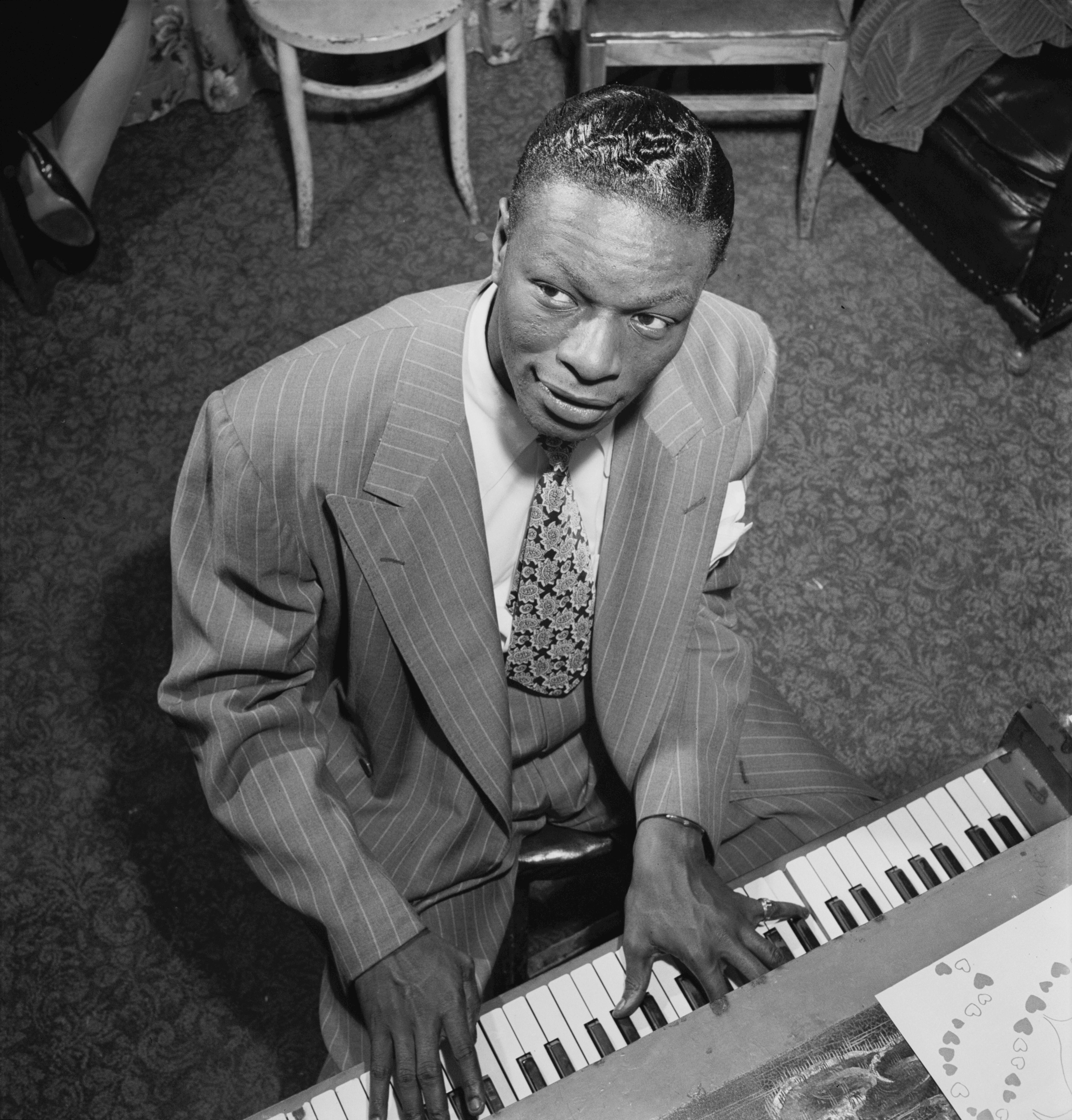Early Life and Musical Beginnings
Nathaniel Adams Coles, known to the world as Nat King Cole, was born on March 17, 1919, in Montgomery, Alabama. He was one of four sons born to Edward Coles, a Baptist minister, and Perlina Coles, a church organist. When Nat was four years old, his family moved to Chicago, a vibrant hub for jazz and blues during the early 20th century.
Cole’s early exposure to music came through the church, where his mother taught him to play the organ. By the age of 12, he had begun formal piano lessons, learning not just classical music but also jazz, a genre that would become his lifelong passion. Influenced by legendary pianists like Earl Hines, Cole quickly developed a unique style that blended technical proficiency with soulful expression.
Rise to Stardom
Cole’s professional career began in his teenage years, performing in various clubs around Chicago. In 1936, at the age of 17, he joined a national tour of the musical revue “Shuffle Along,” which helped him gain experience and exposure. Following the tour, he formed a trio called the King Cole Swingsters, which would later be known as the Nat King Cole Trio. This group featured Oscar Moore on guitar and Wesley Prince on bass, and they became known for their smooth, innovative sound.
The trio’s big break came in 1943 with their hit recording of “Straighten Up and Fly Right,” a song inspired by one of Cole’s father’s sermons. The song’s success catapulted the group into the national spotlight and secured them a recording contract with Capitol Records. Throughout the 1940s, the Nat King Cole Trio recorded numerous hits, including “Route 66,” “The Christmas Song,” and “Nature Boy.”
Transition to Solo Career
By the late 1940s, Nat King Cole’s smooth baritone voice had become as much a trademark as his piano playing. His vocal style, characterized by its warmth and clarity, resonated with a broad audience, leading him to pursue a solo career. In 1950, he recorded “Mona Lisa,” which became a massive hit and solidified his status as a leading crooner of the era.
Throughout the 1950s, Cole continued to release a string of successful singles, such as “Unforgettable,” “Too Young,” and “Smile.” His recordings often featured lush orchestral arrangements, broadening his appeal and showcasing his versatility. Cole’s popularity was not confined to the United States; he enjoyed immense success internationally, particularly in Europe and Latin America.
Pioneering Television and Breaking Barriers
In 1956, Nat King Cole made history by becoming the first African American to host a national television variety show, “The Nat King Cole Show.” Despite its critical acclaim, the show struggled to secure national sponsorship, a reflection of the racial prejudices of the time. Nevertheless, Cole’s presence on television was groundbreaking and paved the way for future African American performers.
Later Years and Legacy
The 1960s saw Cole continuing to perform and record, embracing new musical trends while staying true to his jazz and pop roots. He also ventured into acting, appearing in films such as “Cat Ballou” and “St. Louis Blues.” However, his life was tragically cut short when he was diagnosed with lung cancer in 1964, attributed to his heavy smoking habit. Nat King Cole passed away on February 15, 1965, at the age of 45.
Despite his premature death, Cole’s impact on music and culture endures. He left behind an extensive catalog of recordings that continue to be celebrated for their artistry and emotional depth. His pioneering efforts in television and his contributions to breaking down racial barriers have also left a lasting legacy.
Conclusion
Nat King Cole’s life and career were marked by extraordinary talent, innovation, and resilience. From his early days in Chicago to his rise as an international superstar, he consistently pushed the boundaries of music and entertainment. His smooth voice and sophisticated style have made him a timeless figure in the world of jazz and popular music, ensuring that his influence will be felt for generations to come.


No responses yet